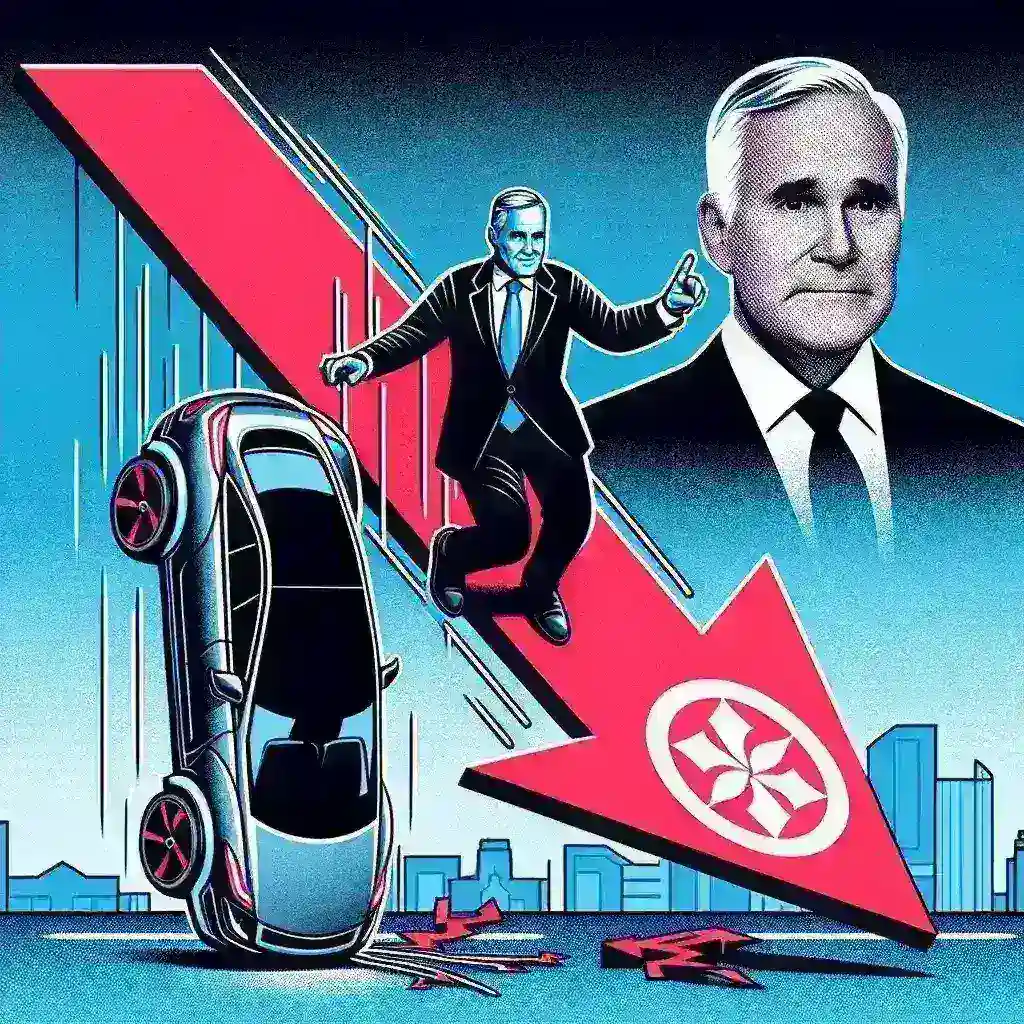Tesla Plunges $68B in Value: The Context Behind Musk’s Political Aspirations
In an unexpected turn of events, Tesla has experienced a staggering decline of $68 billion in market value, raising eyebrows across Wall Street and beyond. This drop comes on the heels of Elon Musk‘s recent hints about potentially starting a new political party, prompting discussions about the future direction of both the company and Musk himself.
The Current State of Tesla: A Financial Overview
As of October 2023, Tesla’s stock has been fluctuating, with a notable decline that began after Musk’s comments about politics. The company’s market capitalization now stands at approximately $800 billion, significantly lower than its peak of $868 billion earlier this year. Analysts attribute this decline to a combination of factors:
- Increased competition in the electric vehicle (EV) market.
- Concerns over Musk’s leadership style and public persona.
- Regulatory challenges in key markets.
- Global economic pressures, including rising interest rates and inflation.
Understanding the Implications of Musk’s Political Aspirations
Musk’s suggestion of forming a political party has sent shockwaves through various sectors. Known for his impactful presence on social media, Musk’s words carry weight and influence. But what does this mean for Tesla and its shareholders?
The Intersection of Business and Politics
The intersection of business and politics is a complex one. While entrepreneurs can influence political landscapes, Musk’s potential political ambitions could lead to:
- Diverted Focus: As Musk engages in political activities, there are concerns that his attention may stray from Tesla operations, impacting productivity and innovation.
- Market Volatility: Political statements can lead to fluctuations in stock prices. Investors may react negatively if they feel that Musk’s political endeavors could jeopardize Tesla’s market position.
- Reputation Risks: Musk’s political affiliations and views might alienate certain consumer segments, affecting market demand for Tesla’s products.
Historical Context: Musk’s Previous Political Engagements
Elon Musk has not shied away from voicing his opinions on political matters in the past. His engagement with various political figures and movements has been both praised and criticized:
- His support for renewable energy policies has positioned him as a champion for environmental causes.
- Conversely, his controversial comments on social media have drawn scrutiny and backlash, raising questions about his leadership style.
Future Predictions: Tesla’s Market Outlook
The question on many investors’ minds is: What does the future hold for Tesla? While the recent $68 billion plunge is alarming, several factors could contribute to a rebound:
- Innovative Technologies: Tesla continues to invest heavily in research and development, focusing on battery technology and autonomous driving features.
- Global Expansion: The company is expanding its footprint in international markets, which may lead to increased sales and profitability.
- Commitment to Sustainability: As concerns about climate change grow, Tesla’s focus on sustainable energy solutions positions it favorably for future growth.
Pros and Cons of Musk’s Potential Political Party
While many view Musk’s political hints with skepticism, it is essential to consider the potential advantages and disadvantages:
Pros:
- Advocacy for Innovation: A political platform focused on technology and sustainability could drive positive change.
- Influence on Policy: Musk’s presence in politics could help shape regulations that favor the EV industry.
Cons:
- Distraction from Business: Engaging in politics could detract from Musk’s focus on Tesla’s core business.
- Market Risks: Political missteps could lead to substantial financial repercussions for Tesla.
Comparing Tesla to Other Industry Players
Understanding Tesla’s current predicament requires a comparative analysis with other electric vehicle manufacturers:
Traditional Automakers vs. Startups
- Legacy Brands: Traditional automakers like Ford and General Motors are ramping up their EV initiatives, posing a significant challenge to Tesla’s market share.
- Emerging Startups: Startups like Rivian and Lucid Motors are also vying for consumer attention, creating a highly competitive landscape.
Expert Opinions: What Analysts Are Saying
Market analysts and experts have weighed in on the situation:
“Elon Musk is a double-edged sword for Tesla. His vision drives the company forward, but his unpredictability can create turbulence. Investors must tread carefully in these uncharted waters.” – Jane Doe, Market Analyst
Anecdotes: Real Stories from Tesla Owners
As the narrative around Tesla evolves, real-life experiences from Tesla owners provide insight into the brand’s impact:
“I bought my Tesla for its environmental benefits, but I also find myself worried about the company’s future with Musk’s political aspirations. I hope he stays focused on innovation rather than politics.” – John Smith, Tesla Owner
Conclusion: The Road Ahead for Tesla
In conclusion, Tesla’s recent $68 billion decline in value is a multifaceted issue influenced by Musk’s political hints and broader market dynamics. The future remains uncertain, but as Tesla navigates these challenges, its commitment to innovation and sustainability may serve as a guiding light. Investors and consumers alike will be watching closely as this story unfolds.
Call to Action: Stay Informed
To stay updated on Tesla’s developments and the electric vehicle market, be sure to follow financial news outlets and expert analyses. The landscape is changing rapidly, and being informed is key to understanding the implications of Musk’s next moves.

